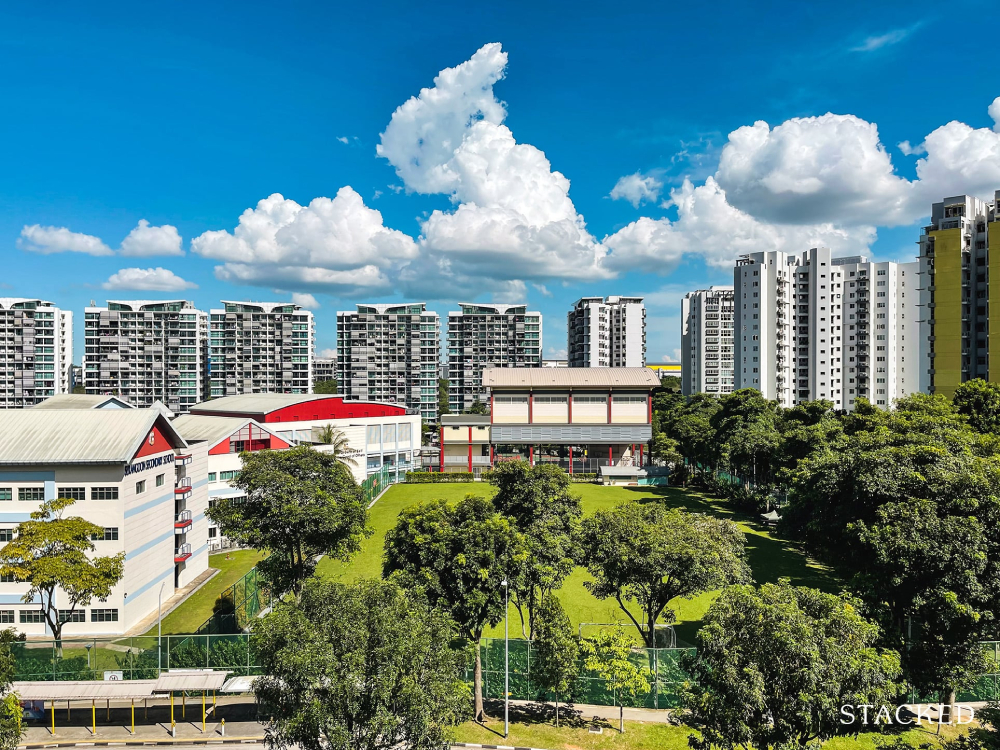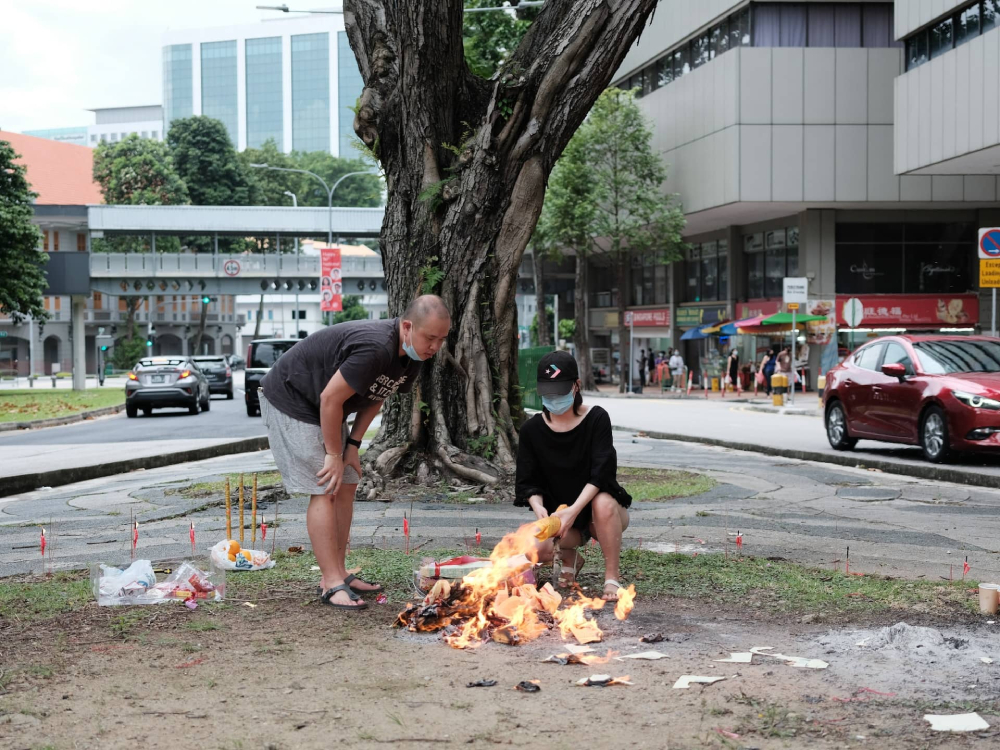The downside of buying a BTO flat in Singapore: 4 lesser-known challenges of the 5-year MOP


Many Singaporeans are aware of the main drawback of the Minimum Occupancy Period (MOP): Ask around, and the most common response it’s "Oh, you can’t sell or rent out so you’re sort of losing money".
While that is one of the main issues, we’ve noticed a lot of Singaporeans tend to overlook other factors as well; and it’s important to consider these potential drawbacks before accepting a five or even 10-year (for Prime and Plus flats) MOP:
The drawback of the MOP is quite clear from a financial standpoint. Private property prices rise every year, and private homes typically outpace the capital appreciation of resale flats.
So the longer you wait, the greater the risk of being unable to upgrade.
There’s also the worry about lease decay and the "99-year timebomb", which is true of leasehold private homes as much as it is for HDB flats.
But private properties at least have a higher hope of en-bloc sales to developers, whereas HDB owners are wholly dependent on the government.
(Unless a day comes when the government decides to allow private developers to participate in the en-bloc sale of HDB flats, but we wouldn’t count on that ever happening.)
But what about pure owner-occupiers, or those who are uninterested in upgrading? As it turns out, the MOP can have an impact on them as well. Consider the following factors.
Finally, there’s the issue of superstitions and taboos — while these may sound trivial or amusing, it has real consequences for the people who believe them.
Primary school is six years, and Secondary school is four years. This issue has been brought up by some astute readers, when it comes to the 10-year MOP of a Prime or Plus flat.

If both the Primary and Secondary schools are nearby, then that’s well and good; but there are cases where there may be Primary schools nearby but not Secondary schools, and vice versa; and the same can apply for situations like Secondary school and tertiary education.
So with a longer MOP, there is some risk that your flat’s location — whilst initially convenient for your child — may end up becoming a much longer journey in the future.
The challenge here is that it’s easy to underestimate the impact, and regret it later.
Some homebuyers may think it’s no issue for their child’s school to be another 15 to 20 minutes further; but when you calculate the time to and fro, and add that it could be for a few years, this can have a significant impact.
Let’s also not forget that schools can also move too, and the restriction over five years can be very inconvenient.
So before you pick a particular flat, we’d suggest you strategise a little here: Will you be out of the MOP, by the time your children are ready to move to the next educational institute?
And if you insist on the location regardless, how will it impact your children’s travel time (and hence also free time and study time)?
This is possibly the worst part of the MOP, and it’s one of the biggest risks of buying a BTO flat (because with a resale flat, there’s a higher chance that you can visit and spot problem neighbours).

There are more articles about nightmare neighbours than we can link, from those who hang soaking wet laundry, to neighbours who borrow from loan sharks, to those with psychological conditions like obsessive hoarding.
Back in 2022, for example, there were 260 unresolved hoarding cases because it was so tough to get hoarders to change (which of course it is, as it’s not a condition that can be fixed overnight).
Hoarding, incidentally, can spread to the common corridor, and you might end up repeatedly spending a fortune on pest control (mostly in a futile attempt, as your hoarder neighbour will continue to breed the pests).
For many homeowners in this situation, the only solution is to sell and move; but you can’t do that if you’re stuck within the MOP, and the authorities don’t agree to grant you special permission to sell early.
We can only imagine this will be even worse, if you end up in this scenario with a 10-year MOP.
Here’s an example of a homeowner who, for five years, dealt with the smell of excrement seeping into her unit (although in all fairness to HDB, we note the flat was DBSS and hence built by a private developer, not by the government).

While we’d like to think every flat has issues that can be solved, both HDB and private housing still produce the occasional lemon — a flat where, no matter how many times the contractor comes down and how many fixes are applied — there’s no quick way to correct the problem.
If there’s no MOP, there is at least a last-resort option to sell and move out (and good luck to the future buyer).
But when the MOP is in effect, there’s no passing the buck: if you buy a lemon, you’re stuck with it for five or 10 years. This is why it’s entirely justified to hire a professional inspector, before you buy the unit.
We do understand the need for HDB to be stringent; otherwise, everyone might want to sell their flat early for reasons like their office moving, their children unexpectedly transferring schools, the grandparents moving away, etc.
Since that’s not practical, most appeals to sell a flat before MOP (barring reasons like death or divorce) tend to be rejected. This means that, if you undergo a big life change, your MOP may imprison you in an expensive or uncomfortable situation.
Common scenarios we encounter are:
For these reasons, being close to the MRT station or having a large number of bus routes really does count, even if for now your office or child’s school is right across the road. You never know when that may change.
Second, while you may think you’ll save by getting a smaller flat, consider what will happen if you need more room later, and are stuck within your MOP.
Regardless of whether you believe in superstitions, ghosts, etc., the fact is that some people do believe in it; and when they believe their flat is jinxed for some reason, it can have serious consequences for their health and well-being.

No one wants to be stuck in a home where they feel they’re constantly in danger, cursed with misfortune, etc. But needless to say, "haunted" or "bad Feng Shui" are not viable reasons to let someone sell their flat before the MOP is up.
(If it were, people would abuse the system by just making such claims whenever they want to sell early.)
This can be a serious conundrum for homeowners who feel the emotional weight of such things, but remain unable to move for five or 10 years.
It’s a sticky issue that we don’t really know how to address, as our forte is real estate and not in the psychology or the supernatural world.
The best we can do is say that you should never dismiss such feelings among the family who will be staying with you.
Even if you don’t believe it, it can take a toll on them; and you don’t want to be stuck within the MOP by the time you realise you need to move.
Five years or a full decade is a long time to commit to something; and we daresay that for many, the commitment of time may be an even greater issue than the commitment of capital.
So look beyond the numbers when it comes to buying your flat, and don’t dismiss the "right vibe" as being something silly; it can really matter.
ALSO READ: Is 2024 the right time to buy your first HDB flat?
This article was first published in Stackedhomes.